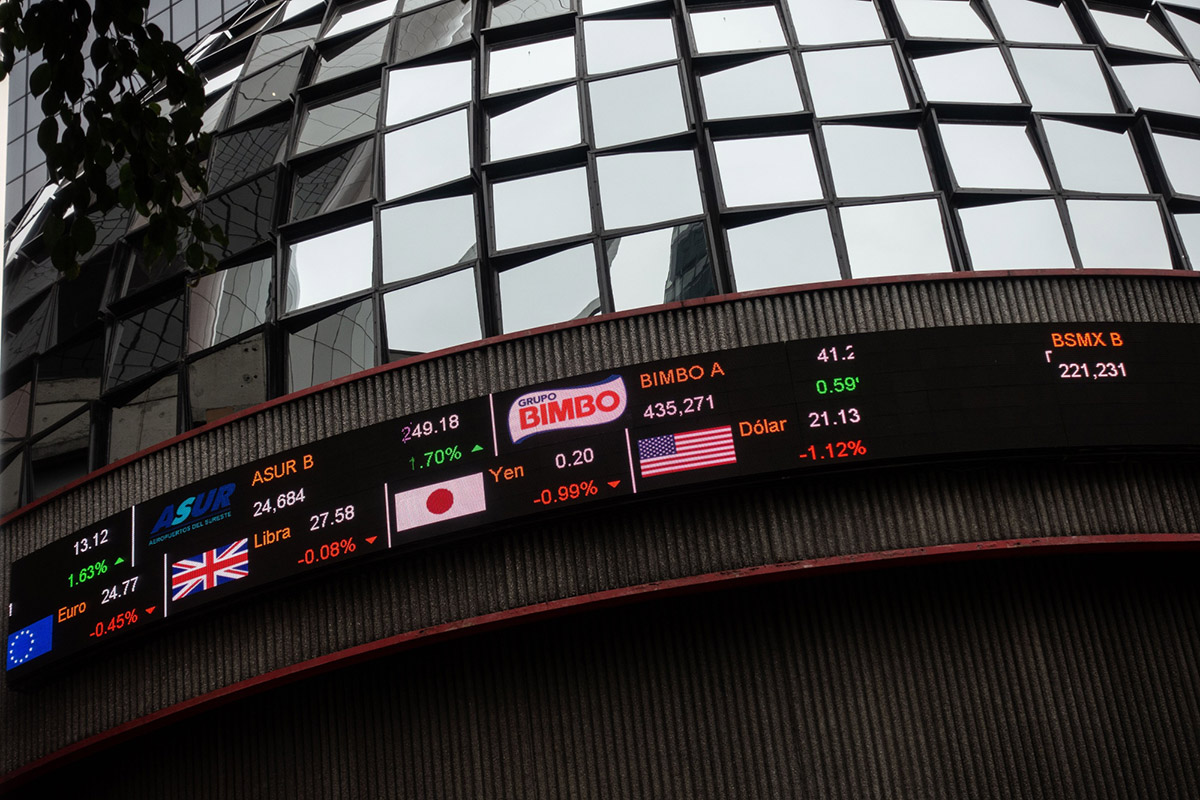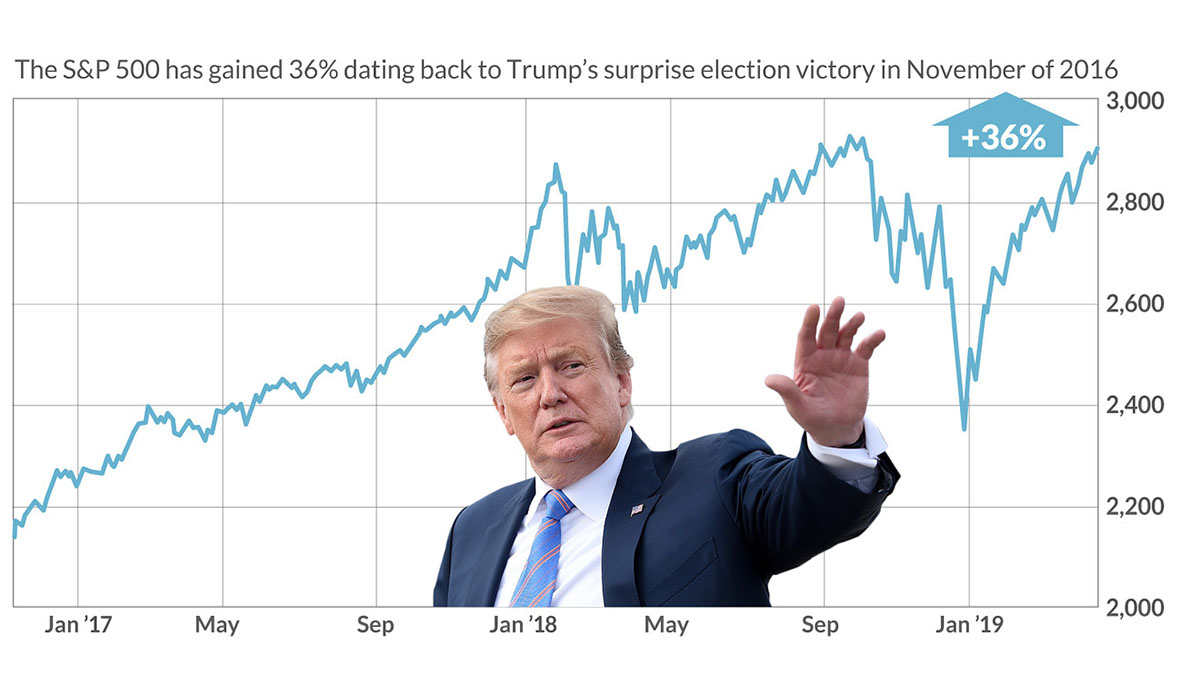

Finance
Why Have International Stocks Underperformed
Published: January 19, 2024
Discover why international stocks have been underperforming in the finance industry and how it impacts investors globally.
(Many of the links in this article redirect to a specific reviewed product. Your purchase of these products through affiliate links helps to generate commission for LiveWell, at no extra cost. Learn more)
Table of Contents
- Introduction
- Factors Impacting the Underperformance of International Stocks
- Currency Fluctuations and Exchange Rate Risk
- Economic and Political Factors
- Differences in Accounting Standards and Regulations
- Home Bias and Investor Behavior
- Diversification Benefits and the Case for International Stocks
- Conclusion
Introduction
International investing has long been considered a key strategy for diversifying investment portfolios and seeking higher returns. However, in recent years, international stocks have faced a challenging environment and have underperformed their domestic counterparts. This has raised questions among investors about the reasons behind this underperformance and whether international stocks are still a worthwhile investment.
There are several factors that have contributed to the underperformance of international stocks. These range from currency fluctuations and exchange rate risk to economic and political factors, as well as differences in accounting standards and regulations. Additionally, investor behavior and home bias have also played a role.
In this article, we will delve deeper into these factors and explore why international stocks have struggled in recent times. We will also discuss the potential benefits of including international stocks in an investment portfolio and why they should not be overlooked.
It is worth noting that the underperformance of international stocks may vary across different regions and time periods. Therefore, it is important to consider the specific context and dynamics of each market when evaluating international investment options.
Factors Impacting the Underperformance of International Stocks
Several factors have contributed to the underperformance of international stocks in recent years. Understanding these factors is crucial for investors seeking to make informed decisions about their investment portfolios.
Currency Fluctuations and Exchange Rate Risk: One of the main factors impacting international stocks is currency fluctuations. When investing in foreign markets, investors are exposed to exchange rate risk, which can significantly impact returns. Volatility in exchange rates can lead to losses or gains when converting profits back into the investor’s home currency. This can create a drag on overall returns and make international investments less attractive, especially during periods of significant currency volatility.
Economic and Political Factors: Economic and political factors in different countries can significantly impact the performance of international stocks. Economic downturns, such as recessions or economic instability, can lead to reduced consumer spending and corporate profitability, affecting stock prices. Similarly, political uncertainties, such as elections, policy changes, or geopolitical tensions, can create volatility in international markets, making investors hesitant to invest in these markets.
Differences in Accounting Standards and Regulations: International stocks operate under different accounting standards and regulations compared to domestic stocks. These differences can create challenges for investors, as they may have to navigate varying reporting standards and disclosure practices. This can make it harder for investors to accurately analyze and compare the financial performance of international companies, leading to lower investor confidence and potentially impacting the stock prices.
Home Bias and Investor Behavior: Home bias refers to the tendency of investors to favor domestic investments over international ones. This bias stems from familiarity with local markets, perceived lower risks, and a preference for investing in companies they know and understand. This bias leads to an under-allocation of funds to international stocks, limiting their potential for growth and causing them to underperform relative to domestic stocks. Investors may also exhibit behavioral biases, such as herd mentality or a fear of missing out, which can further exacerbate the underperformance of international stocks.
These factors, although challenging, do not completely discount the potential benefits of investing in international stocks. By diversifying across different geographic regions and currencies, investors can reduce risk and potentially capitalize on opportunities for growth in markets that are performing well. International stocks can provide exposure to sectors and industries that are not prevalent in domestic markets, offering added diversification and potentially higher returns.
It is essential for investors to carefully assess these factors and understand the unique dynamics of international markets before making investment decisions. Additionally, working with a financial advisor or conducting thorough research can provide valuable insights and guidance when navigating international investments.
Currency Fluctuations and Exchange Rate Risk
Currency fluctuations and exchange rate risk are significant factors that impact the performance of international stocks. When investing in foreign markets, investors face the challenge of dealing with different currencies, which can introduce volatility and uncertainty into investment returns.
Exchange rate risk refers to the potential for changes in exchange rates to affect the value of an investment when converted back into the investor’s home currency. Fluctuations in exchange rates can lead to losses or gains, influencing the overall return on investment. For example, if a U.S. investor holds an international stock denominated in euros and the euro weakens against the U.S. dollar, the value of the investment in dollar terms will decrease.
Exchange rate risk is particularly relevant for long-term investors who plan to repatriate their investments or earn dividends in their home currency. Fluctuations in exchange rates can erode the purchasing power of returns and potentially erode profits. This risk is amplified in times of high currency volatility, such as during economic or political upheavals.
There are multiple factors that can influence currency fluctuations. Economic indicators, such as interest rates, inflation, and overall economic performance, play a significant role in determining the value of a country’s currency. Political stability, trade policies, and geopolitical events can also impact exchange rates. In addition, market sentiment and investor perception of a country’s economic prospects can contribute to currency movements.
So, how can investors navigate currency fluctuations and manage exchange rate risk? One common strategy is hedging. Hedging involves taking measures to protect against adverse currency movements by entering into contracts, such as forward contracts or currency options. These instruments can help mitigate the impact of currency fluctuations on investment returns. However, it is important to note that hedging introduces its own set of complexities and costs, and its effectiveness can vary depending on market conditions.
Another approach is to diversify investments across different currencies. By spreading investments across various currencies, investors can reduce their dependence on any single currency and potentially benefit from favorable exchange rate movements. This diversification strategy helps to mitigate the impact of adverse exchange rate fluctuations.
It is important for investors to stay informed about global economic and political developments that can impact currency movements. Monitoring economic indicators, central bank policies, and geopolitical events can provide insights into potential currency risks.
Overall, investors should be aware of the currency fluctuations and exchange rate risk associated with international investments. While currency volatility can impact returns, it is not a reason to completely avoid investing in international stocks. With proper risk management strategies, diversification, and careful monitoring of currency movements, investors can navigate the challenges of exchange rate risk and potentially benefit from the growth opportunities offered by international markets.
Economic and Political Factors
Economic and political factors play a crucial role in the performance of international stocks. These factors can have a significant impact on the overall economic conditions of a country, which in turn affects the profitability and stability of companies operating within that country’s stock market.
Economic downturns, such as recessions or economic instability, can have a direct negative effect on the performance of international stocks. During periods of economic contraction, consumer spending tends to decrease, leading to reduced revenues for businesses. This, in turn, can negatively impact corporate profitability and ultimately the stock prices of companies listed in the affected country’s stock market.
Political uncertainties also play a significant role in the performance of international stocks. Elections, changes in government policies, political conflicts, and geopolitical tensions can create volatility and uncertainty in global markets. Political instability poses risks and raises concerns for investors, leading to a downturn in international stock markets. Investors may become cautious and hesitant to invest in such uncertain environments, which can adversely affect the performance of international stocks.
Trade policies, including tariffs and trade restrictions, are another important aspect of economic and political factors that impact international stocks. Changes in trade policies can disrupt global supply chains, increase costs for companies, and affect their competitiveness in international markets. Trade disputes and protectionist measures between countries can create market volatility and negatively impact international stocks.
It is important for investors to stay informed about the economic and political conditions of the countries they are considering for investment. Monitoring economic indicators, such as GDP growth, inflation rates, and employment data, can provide insights into the overall health of an economy. Additionally, keeping abreast of political developments and geopolitical events can help investors anticipate potential risks and adjust their investment strategies accordingly.
It is worth noting that while economic and political factors can pose risks, they can also present opportunities for savvy investors. Positive economic developments, such as strong GDP growth, favorable government policies, or infrastructure investments, can create an attractive investment climate and drive the performance of international stocks. Therefore, a careful assessment of economic and political conditions, along with proper risk management, is crucial for investors seeking to capitalize on international investment opportunities.
Despite the challenges presented by economic and political factors, international stocks should not be dismissed outright. By diversifying across different countries and regions, investors can spread their risk and potentially benefit from the growth potential of economies not directly correlated to their domestic market. Proper research, analysis, and risk management can help investors navigate the complexities of economic and political factors, allowing them to make informed investment decisions.
Differences in Accounting Standards and Regulations
Differences in accounting standards and regulations between countries can significantly impact the performance and evaluation of international stocks. These variations pose challenges for investors in analyzing and comparing the financial performance of companies operating in different jurisdictions.
Accounting standards refer to the rules and guidelines that govern the preparation and presentation of financial statements. Different countries have adopted their own set of accounting standards, such as Generally Accepted Accounting Principles (GAAP) in the United States, International Financial Reporting Standards (IFRS) used in many countries globally, and country-specific accounting standards.
The differences in accounting standards can result in variations in how companies recognize revenue, value assets, report liabilities, and disclose financial information. These differences can make it difficult for investors to accurately compare and evaluate the financial performance of international companies.
Furthermore, regulations governing financial reporting and disclosure requirements can also differ across countries. This can impact the quality and transparency of financial information available to investors. In some cases, the lack of uniformity may lead to discrepancies in reporting practices, raising concerns about the reliability and accuracy of financial statements.
The varying accounting standards and regulations can influence key financial metrics used by investors, such as earnings per share, return on equity, and debt-to-equity ratios. These metrics serve as important benchmarks for evaluating a company’s financial health and performance. Inconsistent reporting practices can distort these metrics and make it challenging for investors to make informed investment decisions.
While efforts have been made towards convergence and harmonization of accounting standards globally, differences still persist. For example, there are differences in the treatment of revenue recognition, leasing arrangements, and financial instruments. Such variations can impact the comparability of financial statements and hinder investors’ ability to assess the true value and performance of international stocks.
Investors need to be aware of the accounting standards and regulations applicable to the companies they are considering for investment. It is essential to review financial statements, footnotes, and auditor reports to understand how accounting policies and regulatory requirements may impact the reported financial performance of companies.
Despite the challenges posed by accounting standards and regulations, not all differences should be viewed negatively. Some differences in reporting practices may reflect cultural and legal variations across countries. Additionally, certain reporting differences can offer valuable insights into the unique aspects of a company’s operations and industry-specific considerations.
Investors can mitigate these challenges by seeking professional advice from financial analysts who specialize in international markets. Additionally, staying educated about accounting standards and regulations through reputable sources and conducting thorough due diligence can help investors navigate the complexities and make informed decisions when investing in international stocks.
Home Bias and Investor Behavior
Home bias refers to the tendency of investors to favor domestic investments over international ones. This bias can have a significant impact on the performance and allocation of investment portfolios. While home bias is a common phenomenon, it can lead to missed opportunities and potential underperformance of international stocks.
Several factors contribute to home bias. Familiarity with local markets, companies, and industries often leads investors to feel more comfortable investing in companies they know and understand. Additionally, there is often a perception of lower risk associated with domestic investments, as investors are more familiar with the economic and political landscape of their home country.
Investor behavior also plays a role in reinforcing home bias. Herd mentality, or the tendency to follow the crowd, can lead investors to prioritize domestic investments based on the actions and recommendations of others. Fear of missing out (FOMO) can also influence behavior, as investors may worry about potential opportunities and returns they might miss if they shift their focus to international markets.
Home bias can result in an under-allocation of funds to international stocks, limiting the potential for diversification and exposure to global growth opportunities. By overlooking international markets, investors may miss out on sectors and industries that are not prevalent in their domestic market, potentially depriving their portfolios of diversification benefits.
There are several ways to address home bias and encourage a more balanced approach to international investing:
- Educating investors: Providing education and raising awareness about the benefits of international diversification can help investors overcome their biases and expand their investment horizons.
- Seeking professional advice: Working with a trusted financial advisor can provide valuable guidance and help investors navigate international markets with confidence.
- Systematic investment plans: Implementing a systematic investment plan that includes regular investments in international stocks can gradually reduce home bias over time.
- Utilizing index funds and exchange-traded funds (ETFs): Investing in index funds or ETFs that track international stock market indexes can provide broad exposure to global markets without requiring extensive research or individual stock selection.
- Monitoring and rebalancing portfolios: Regularly reviewing and rebalancing investment portfolios to ensure appropriate exposure to both domestic and international stocks can help maintain a well-diversified portfolio.
By overcoming home bias and embracing international investing, investors can benefit from increased diversification, exposure to different economies and markets, and potentially higher returns. However, it is important to approach international investing with proper research, risk management, and a long-term perspective.
While home bias and investor behavior can present challenges, they can also be opportunities for investors to broaden their investment perspectives and capitalize on international investment opportunities. By recognizing and addressing these biases, investors can unlock the potential benefits of a well-diversified portfolio that includes international stocks.
Diversification Benefits and the Case for International Stocks
Diversification is a fundamental strategy in investing, and international stocks play a crucial role in achieving a well-diversified portfolio. By including international stocks in an investment portfolio, investors can reap several benefits and enhance their overall risk-return profile.
One key advantage of investing in international stocks is the potential for improved risk management through geographic diversification. Different countries have different economic cycles, political landscapes, and market dynamics. By spreading investments across multiple markets, investors can reduce their exposure to risks specific to any single country or region. This diversification helps to mitigate the impact of localized economic downturns or geopolitical uncertainties, reducing the overall volatility of the portfolio.
Moreover, international stocks offer exposure to sectors and industries that may not be as prominent in a domestic market. Investing solely in domestic stocks may limit the opportunities for gaining exposure to rapidly growing sectors, emerging markets, or innovative companies that are not available or prevalent in the investor’s home market. International stocks provide access to a broader range of investment opportunities, enhancing the potential for higher returns.
In addition to sector diversification, international stocks also offer exposure to different currencies. Currency movements can create opportunities for additional returns or act as a hedge against domestic currency fluctuations. When the home currency weakens against other currencies, the value of international investments denominated in those currencies will increase when converted back into the home currency.
Globalization and increased connectivity have also made it easier for investors to access international markets. With advances in technology and the availability of international brokerage firms, investors can easily trade international stocks and benefit from global investment opportunities. This accessibility has opened up avenues for investors to build a truly global portfolio, taking advantage of different market conditions and potential growth in various regions.
It is crucial to note that international stocks may exhibit different risk and return characteristics compared to domestic stocks. They may be affected by currency fluctuations, political uncertainties, and varying accounting standards ─ factors that investors need to carefully consider and manage. Thorough research, proper risk assessment, and diversification across regions and sectors are essential for capturing the potential benefits of international stocks.
Investing in international stocks can be done directly by purchasing individual stocks listed on foreign exchanges, or indirectly through mutual funds or exchange-traded funds (ETFs) that specialize in international equities. These investment vehicles provide access to a diversified portfolio of stocks from multiple countries and can be a convenient and cost-effective way to gain exposure to international markets.
In summary, international stocks offer diversification benefits, access to different sectors and economies, and the potential for higher returns. By including international stocks in an investment portfolio, investors can reduce risk, capitalize on global growth opportunities, and enhance their overall investment performance. However, it is important for investors to conduct thorough research, monitor market conditions, and maintain a long-term perspective when venturing into international investing.
Conclusion
The underperformance of international stocks in recent years can be attributed to several factors, including currency fluctuations, economic and political factors, differences in accounting standards and regulations, as well as investor biases and behavior. These challenges have led to a preferential focus on domestic investments, resulting in home bias and missed opportunities for diversification.
However, it is important to recognize that international stocks still hold value in investment portfolios. The diversification benefits they offer, through exposure to different markets, sectors, and currencies, can enhance risk management and potentially deliver higher returns. By embracing international investing and overcoming biases, investors can unlock the potential for greater diversification and access to global growth opportunities.
While there are risks associated with international investments, such as currency volatility and varying regulatory environments, these challenges can be mitigated through proper research, risk management strategies, and the guidance of financial professionals. By staying informed about global economic and political conditions, as well as understanding the differences in accounting standards, investors can make more informed decisions regarding international stock investments.
In conclusion, international stocks are an important component of a well-diversified investment portfolio. By considering international investments alongside domestic ones, investors can achieve greater risk-adjusted returns and reduce the impact of localized economic uncertainties. By broadening their investment horizons, embracing diversity, and understanding the unique dynamics of different markets, investors can seize the potential benefits and opportunities presented by international stocks.
As always, it is crucial for investors to carefully evaluate their risk tolerance, investment goals, and seek professional guidance when venturing into international investments. By striking the right balance between domestic and international holdings, investors can harness the benefits of diversification and position their portfolios for long-term success.














